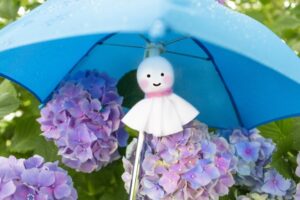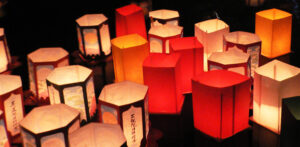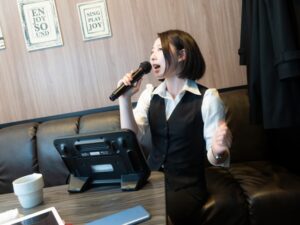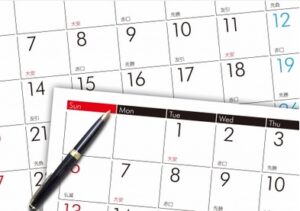How to say the Japanese calendar and numbers
Reference from the Japan Foundation
Explore the essence of Japan through our online courses, designed to master the Japanese language and its cultural intricacies, including numbers and the calendar. Our platform caters to a global audience, offering lessons for students and professionals alike. Immerse yourself in Japan’s culture and history, from Tokyo’s dynamism to its serene landscapes, all from the comfort of your home.
Our comprehensive language programs, led by experienced teachers, are perfect for those looking to deepen their understanding of Japan’s heritage and language. With options for private tutoring and a focus on cultural proficiency, we bridge the gap between learners and the rich traditions of Japanese life. Embrace this opportunity to enhance your language skills and cultural knowledge, paving your way towards fluency and a deeper international appreciation. Join our community and discover the beauty of Japan’s language and culture through our tailored educational journey.
There are many things that use numbers. Each one has a different way of saying it, so pay attention and learn along with me!
If you have any questions, ask them for free! ➡ Japanese Question Form
How to count numbers in Japanese
0 zero:ぜろ・れい zero・rei
1 one:いち ichi
2 two:に ni
3 three:さん san
4 four:よん・し yon・shi
5 five:ご go
6 six:ろく roku
7 seven:なな・しち nana・sichi
8 eight:はち hachi
9 nine:きゅう・く kyuu・ku
10 ten:じゅう juu
11 eleven:じゅういち juuichi
12 twelve:じゅうに juuni
・・・
20 twenty:にじゅう nijuu
21 Twenty one:にじゅういち nijuichi
・・・
100 a hundred:ひゃく hyaku
1000 a thousand:せん sen
10000 ten thousand:まん man
・・・
Some numbers have two ways of saying the same thing
In Japanese, when counting the number of things The way of counting numbers changes.
one 一つ:ひとつ hitotsu
two 二つ:ふたつ futatsu
three 三つ:みっつ mittus
four 四つ:よっつ yottsu
five 五つ:いつつ itsutsu
six 六つ:むっつ muttsu
seven 七つ:ななつ nanatsu
eight 八つ:やっつ yattsu
nine 九つ:ここのつ kokonotsu
ten 十:とお tou
How to say your age
Now let’s move on to saying your age!
The year is expressed as “-sai (歳)”.
1 year old 1歳:いっさい (×いちさい) issai
2 years old 2歳:にさい nisai
3 years old 3歳:さんさい sansai
4 years old 4歳:よんさい (×しさい) yonsai
5 years old 5歳:ごさい gosai
6 years old 6歳:ろくさい rokusai
7 years old 7歳:ななさい (×しちさい) nanasai
8 years old 8歳:はっさい (×はちさい) hassai
9 years old 9歳:きゅうさい(×くさい)kyusai
10 years old 10歳:じゅっさい(×じゅうさい)jussai
11 years old 11歳:じゅういっさい juuissai
12 years old 12歳:じゅうにさい juunisai
・・・
20 years old 20歳:はたち・にじゅっさい hatachi・nijussai
21 years old 21歳:にじゅういっさい nijuuissai
In Japan, the special term “hatachi” is used because it was defined as the age of adulthood at 20.”
From April 2022, the age of 18 has been changed to the age of adulthood.
Let’s learn how to say dates!
Year is “~nen”.
Month is “~gatsu”.
Hi is “~nichi” Day is “~nichi
一月 いちがつ ichi gatsu January
二月 にがつ ni gatsu February
三月 さんがつ san gatsu March
四月 しがつ shi gatsu April
五月 ごがつ go gatsu May
六月 ろくがつ roku gatsu June
七月 しちがつ shichi gatsu July
八月 はちがつ hati gatu August
九月 くがつ ku gatsu September
十月 じゅうがつ juu gatsu October
十一月 じゅういちがつ juuichi gatsu November
十二月 じゅうにがつ juuni gatsu December
The day will be said in a different way.
2nd 2日:ふつか futsuka
3rd 3日:みっか mikka
4th 4日:よっか yokka
5th 5日:いつか itsuka
6th 6日:むいか muika
7th 7日:なのか nanoka
8th 8日:ようか youka
9th 9日:ここのか kokonoka
10th 10日:とおか touka
11th 11日:じゅういちにち juuichinichi
12th 12日:じゅうににち juuninichi
13th 13日:じゅうさんにち juusannichi
14th 14日:じゅうよっか juuyokka
15th 15日:じゅうごにち juugonichi
16th 16日:じゅうろくにち juurokunichi
17th 17日:じゅうななにち・じゅうしちにち juunananichi・juushichinichi
18th 18日:じゅうはちにち juuhachinichi
19th 19日:じゅうくにち juukunichi
20th 20日:はつか hatsuka
21st 21日:にじゅういちにち nijuuichinichi
・・・
It’s hard, but we’ll learn it together!
How to say day and year
Japanese days of the week don’t follow such an easy pattern, but here they are anyway, along with some other time-related words.
明日 あした ashita Tomorrow
昨日 きのう kinou Yesterday
一昨日 おととい ototoi The day before yesterday
明後日 あさって asatte The day after tomorrow
今朝 けさ kesa This morning
今晩 こんばん konban This evening
今 いま ima Now
今年 ことし kotoshi This year
去年 きょねん kyonen Last year
来年 らいねん Rainen Next year
再来年 さらいねん Sarainen year after next
How to say time
1 o’clock 1時:いちじ ichiji
2 o’clock 2時:にじ niji
3 o’clock 3時:さんじ sanji
4 o’clock 4時:よじ yoji
5 o’clock 5時:ごじ goji
6 o’clock 6時:ろくじ rokuji
7 o’clock 7時:しちじ shichiji
8 o’clock 8時:はちじ hachiji
9 o’clock 9時:くじ kuji
10 o’clock 10時:じゅうじ juuji
・・・
Note that only 4:00 and 9:00 are said differently.
1 minute 1分:いっぷん ippun
2 minutes 2分:にふん nifun
3 minutes 3分:さんぷん sanfun
4 minutes 4分:よんぷん yonfun
5 minutes 5分:ごふん gofun
6 minutes 6分:ろっぷん roppun
7 minutes 7分:ななふん nanafun
8 minutes 8分:はっぷん happun
9 minutes 9分:きゅうふん kyufun
10 minutes 10分:じゅっぷん・じっぷん juppun・jippun
11 minutes 11分:じゅういっぷん juuippun
・・・
30 minutes 30分:はん・さんじゅっぷん han・sanjuppun
・・・
A half hour is called “han”.
For example, 4:30 is called “yoji-han”.
Discover the richness of the Japanese language and immerse yourself in the tapestry of Japanese culture. Our e-learning platform offers learners at all levels, from school to university, an unparalleled opportunity to explore unique aspects of Japan’s international appeal through our meticulously curated courses. Whether you are a language enthusiast seeking to deepen your understanding, an international student preparing to live in Japan, or simply curious about the rhythms of Japanese life, our materials are customized to your needs.
Our detailed explanations of how to read and understand the Japanese calendar will help you get in touch with the essence of Japanese traditions. Informative and free to access, our content is designed to enhance the learning experience, making mastery of these concepts as engaging as it is informative. From traditional festivals to contemporary applications, our courses bridge the gap between culture and education and provide a unique perspective on Japanese society.
KEY:
Just put the character for “moon month” after the number of the month, and you have the name of each month.
月の数字の後に「月」の文字を入れれば、それぞれの月の名前になります。

HH Japa Needs has been accumulating lesson know-how specializing in private Japanese lessons for over 10 years.
There are many tutors all over Japan and even in other countries abroad. We cover all the teaching material know-how, so please ask any question about how to study.
Column
日本では、1872年まで陰暦が使われていました。
In Japan, the lunar calendar was used until 1872.
陰暦では、月の季節や行事に合わせた和風の呼び名を使用し、現在の暦でも使用されることがあります。
The lunar calendar uses Japanese names for the seasons and events of the month, which are sometimes used in the current calendar.
陰暦の一覧
List of the lunar calendar
一月:睦月(むつき) 仲睦まじい月
1月は年の始めに当り行事の多い時期で、この機会に仲睦まじさを深めるようなお付き合いをしようという意味合いがあるとしています。
January: Mutsuki: The month of friendship
January is a time of many events as it marks the beginning of the year, and it is meant to be an opportunity to deepen friendship and get to know each other.
二月:如月(きさらぎ) 草木が発芽する月
「子供が誕生するが如く草木が芽生える月」との意味からきている説もあるようです。
February: Kisaragi: The month of budding plants and trees
“There is a theory that this is the month when plants and trees sprout, just like the birth of a child.
三月:弥生(やよい) 草木が生い茂る月
春を迎えて草木がどんどん育つ時期で、いやが上にも生え繁ることを「いやおい」と言い、それが「やよい」になったと言われています。
March: Yayoi: The month when plants and trees grow thickly
This is the time of year when plants and trees grow rapidly in spring.
四月:卯月(うづき) 卯の花の咲く月
十二支の卯が4番目に来ることから「4番目の月」から来たとする説もあります。
April: Uzuki: The month when rabbit flowers bloom
It is said that it came from the “fourth month” because the zodiac rabbit came fourth.
五月:皐月(さつき) 稲の苗を作る早苗月
さわやかな新緑の候、田の神様を奉じて田植えをする季節でもあります。
May: Satsuki: The month of early rice planting
This is the season for planting rice in honor of the god of rice fields.
六月:水無月(みなづき) 水が無くなる月
田植えなどの水が大切な季節であり、梅雨の季節でもあります。あちこちで田に水を引き、また暑さが厳しくなるなどで、水が無くなるという「水無し月」から来たとの説もあるようです。
June:Minazuki: The month when there is no more water
This is the season when water is important for planting rice, and also the rainy season. There is a theory that this month comes from “Mizunazuki,” the month when there is no more water due to the drawing of water in the rice fields here and there, and also due to the severe heat.
七月:文月(ふみづき) 文を書く月
七夕の牽牛星・織女星になぞらえて、詩歌を作り供えたことに始まるとされています。
July: Fumiduki: The month of writing
This month is said to have originated from the time when people wrote poems and offered them to the gods, likening them to the stars Altair and Orihime.
八月:葉月(はづき) 葉っぱが美しい月
広葉樹が色付き始め段々と美しくなる月であることからきていると言われています。
August: Haduki: A month of beautiful leaves
It is said that the name comes from the fact that this is the month when broad-leafed trees begin to change color and become more and more beautiful.
九月:長月(ながつき) 月が長く見られる月
秋もいよいよ深まり始め、夜長の時期を迎える月とされています。
September: Nagatsuki: The month when the moon can be seen for a long time
It is said that this is the month when autumn begins to deepen and the night becomes longer.
十月:神無月(かんなずき) 神がい無くなる月
この月は全国各地の神々が出雲に一同に会し、各地から神が居なくなることから言われているとしています。
October: Kannazuki: The month when the gods disappear
This month is said to be the month when the gods from all over the country gather in Izumo and the gods disappear from the land.
十一月:霜月(しもつき) 霜が降りる頃の月
秋も深まり、早いところでは朝霜が降りる時期になったことを表しているといわれています。
November: Shimotsuki: The month when the frosts begin to fall.
It is said that this month represents the deepening of autumn and the onset of morning frost in some places.
十二月:師走(しわす) 師僧も走る多忙な月
誰もが年の瀬をひかえて何かと気忙しく慌ただしくなる時期で、どっしり構えて読経をする師僧までも走り回らなければと思わせる程の多忙な月であるとされています。
December: Shiwasu: The busy month when even priests run
This is the time of year when everyone is busy and hectic, and even the priests who are standing tall and reading sutras are said to be so busy that they feel they have to run around.

Teru teru bozu meaning in Japanese
Have you ever heard of the term teru teru bozu? Children don’t make them anymore, so you may not have

What should we do about “Mukaebi” and “Okuribi” during Obon?
As the saying goes, “Bon and New Year’s Day”, Obon is as important to the Japanese as New Year’s Day.

Frequency of Earthquakes in Japan and Magnitude of Major Earthquakes that Have Occurred
Compared to Western countries, Japan has fewer crimes and very clean streets, giving the impression of a “safe and secure”

Leisure activities that Japanese people do on their days off
The Japanese are known worldwide as the “overworked” nation, right? Although it may not seem so high, ranking 28th in






